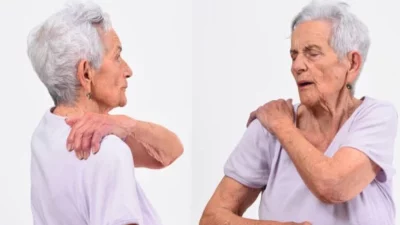In the evolving landscape of healthcare, mental health remains a critical concern that commands attention and specialized care. As the demand for mental health services grows, advanced practice nurses with specialized training are increasingly vital. A Post-Masters Psychiatric Mental Health Nurse Practitioner (PMHNP) program equips nurses with the expertise necessary to meet these challenges head-on. Below, we’ll explore the multitude of benefits associated with pursuing a post-master’s PMHNP program and its vital role in our healthcare system.
Understanding the Role of a Psychiatric Mental Health Nurse Practitioner

Psychiatric Mental Health Nurse Practitioners are advanced practice registered nurses who provide a wide range of mental health services to patients. They are trained to assess, diagnose, and treat individuals with psychiatric disorders, working across diverse settings from hospitals to outpatient clinics. Their holistic approach encompasses not just medication management but also psychotherapy and counseling, placing them at the forefront of patient-centered care.
These medical professionals fill a unique niche in health care, frequently serving as primary mental health providers for their patients. They possess the authority to prescribe medications and are often responsible for devising comprehensive treatment plans. As they stem from a nursing background, PMHNPs approach patient care with an emphasis on therapeutic communication, patient education, and empathy—traits that are indispensable in psychiatric care.
The role of a PMHNP also extends to advocacy within the community and healthcare policy. They contribute valuable insights to discussions about mental health care reform and play an essential part in increasing access to mental health services. Their expert knowledge makes them strong voices in the endeavor to de-stigmatize mental health issues.
Advancing Mental Health Care Through Post-Masters PMHNP Programs

Post-master’s PMHNP programs are designed to build upon the foundational knowledge nurses have acquired through their master’s degree in nursing. These programs delve deeply into psychiatric-mental health nursing, covering advanced pharmacology, pathophysiology, and physical assessment, as well as specialized training in psychiatric assessment, therapeutic interventions, and crisis management. The curriculum is intentionally crafted to produce highly qualified psychiatric nurse practitioners poised to address the intricacies of mental health care.
The significance of such advanced education cannot be overstated, especially considering the complex nature of mental health diagnostics and treatment. Post-masters training enables nurses to hone their clinical judgment and sharpen their expertise in mental health care. By focusing on both theoretical knowledge and extensive clinical practice, these nurses emerge as leaders in the field, fully equipped to manage mental health conditions with confidence and skill.
One notable example of this specialized education is the online psych NP programs offered by various institutions. These programs provide a flexible learning environment for practicing nurses, allowing them to further their education without interrupting their careers. Online courses are designed to be accessible and comprehensive, ensuring that the next generation of PMHNPs is prepared to meet the demands of the field.
Bridging the Gap in Mental Health Services With Advanced Practice Nursing
The United States is confronting a significant shortage of mental health providers, a situation that exacerbates the challenges associated with accessing quality care. PMHNPs are ideally positioned to bridge this service gap, especially in rural and underserved communities where mental health services may be scarce. Their advanced training and ability to provide comprehensive psychiatric care make them a crucial component in the health workforce.
As integrated care models become more prevalent, PMHNPs have found an expanding role in primary care settings. Their expertise allows for the early detection and intervention of mental health conditions, fostering better outcomes. By working closely with other healthcare professionals, PMHNPs contribute to a more holistic approach to care, acknowledging the integral connection between mental and physical health.
The ability of NPs to practice independently in some states further enhances their capacity to serve as primary mental health providers. This level of autonomy empowers PMHNPs to lead patient care and helps healthcare systems become more agile, as these practitioners can adjust their care delivery methods to meet the ever-evolving needs of their communities.
Overall, the role of post-master’s prepared Psychiatric Mental Health Nurse Practitioners in advancing health care is indispensable. They bring a wealth of knowledge and compassion to a field in dire need of both. With their specialized skills and dedication, PMHNPs are filling gaps in mental health services and reshaping the future of mental health care for the betterment of all.

Lexy Summer is a talented writer with a deep passion for the art of language and storytelling. With a background in editing and content creation, Lexy has honed her skills in crafting clear, engaging, and grammatically flawless writing.



